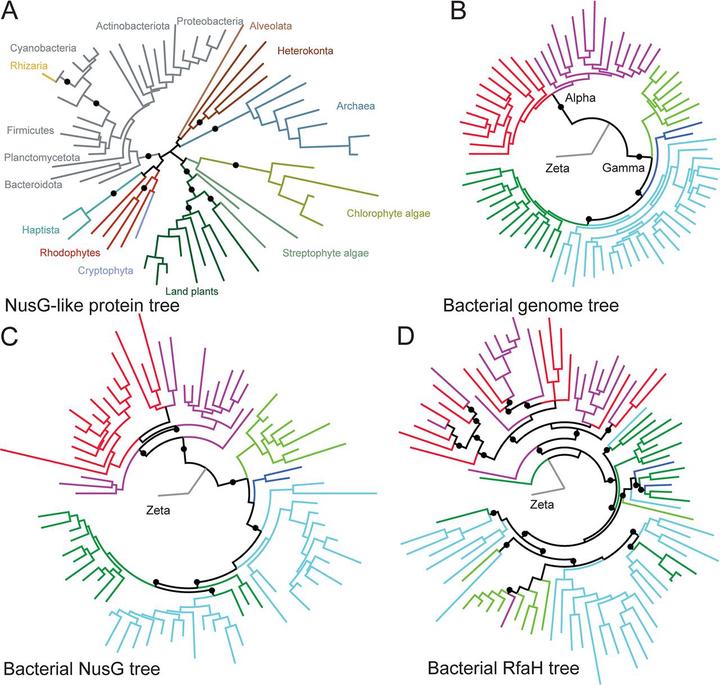Origins and Molecular Evolution of the NusG Paralog RfaH

Abstract
The only universally conserved family of transcription factors comprises housekeeping regulators and their specialized paralogs, represented by well-studied NusG and RfaH. Despite their ubiquity, little information is available on the evolutionary origins, functions, and gene targets of the NusG family members. We built a hidden Markov model profile of RfaH and identified its homologs in sequenced genomes. While NusG is widespread among bacterial phyla and coresides with genes encoding RNA polymerase and ribosome in all except extremely reduced genomes, RfaH is mostly limited to Proteobacteria and lacks common gene neighbors. RfaH activates only a few xenogeneic operons that are otherwise silenced by NusG and Rho. Phylogenetic reconstructions reveal extensive duplications and horizontal transfer of rfaH genes, including those borne by plasmids, and the molecular evolution pathway of RfaH, from “early” exclusion of the Rho terminator and tightened RNA polymerase binding to “late” interactions with the ops DNA element and autoinhibition, which together define the RfaH regulon. Remarkably, NusG is not only ubiquitous in Bacteria but also common in plants, where it likely modulates the transcription of plastid genes.